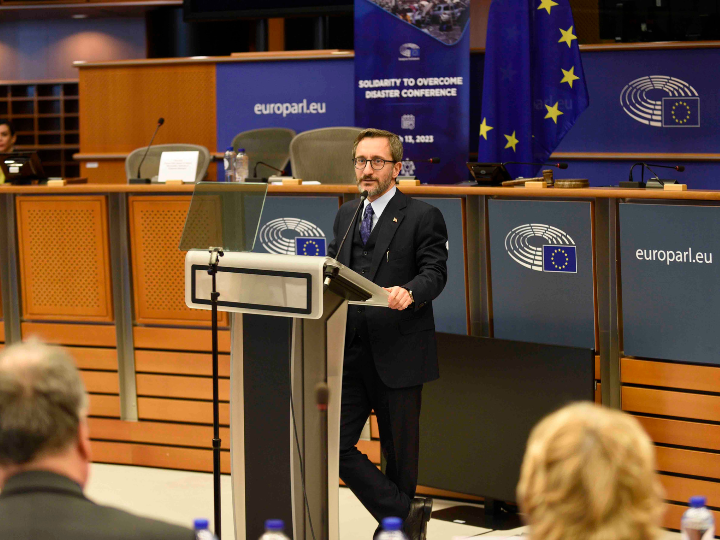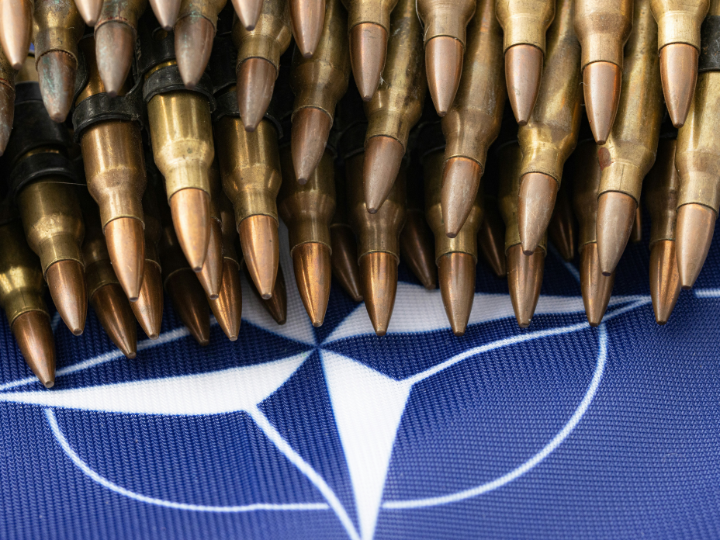by Martin Banks
A major conference in Brussels on the recent tragic earthquakes in Turkiye and Syria heard that it will be many months before thousands can leave tents or container housing, and daily queues for food, and move into permanent housing.
A high-level panel brought together EU and Turkish officials and experts to discuss the tragedy seven weeks ago and the way forward, not least for the economy of the stricken region.
An estimated $34 billion was caused in direct physical damage to homes, schools, health care facilities and other public infrastructure but total reconstruction and recovery costs could be twice as high.
The event in Parliament (13 March) comes in the wake of what has been described as the “Disaster of the Century”. In the early morning of February 6, 2023, Turkiye experienced a 9 hour period that would dramatically change the lives of millions of its citizens and fill the country with deep sorrow.Twin earthquakes rocked a large region of southern Turkiye leaving a path of destruction in its wake. In its aftermath, more than 40,000 people were dead and millions were left homeless.
The devastating quakes, with magnitudes of 7.7 and 7.6, had affected an area of 110,000 square kms or roughly the size of Bulgaria.
The intensity of the massive tremors caused over 12,000 buildings to collapse and many more were severely damaged. In the aftermath of these earthquakes, Turkiye sounded a level 4 alarm, calling for global assistance.
The stricken region is home to about 25 million people, hosts many factories producing goods such as cement, textiles, automotive items and oil and is a transit channel for international trade.
The international community, the event was told, strongly responded to Turkiye as more than 90 countries sent search and rescue teams and over 10,000 personnel in what has become the biggest search and rescue mission of all-time. This global solidarity helped save thousands of lives.
In total, close to €12 million of EU humanitarian aid has been allocated to respond to the immediate needs of the population in Turkiye,it was said.
In the panel debate in Parliament the main keynote speaker Fahrettin Altun, Director of Turkish Presidential Communications, said Turkiye “much appreciated” EU support and solidarity and looks forward to further assistance in relief and recovery for earthquake survivors.
Polish MEP Ryszard Czarnecki, chair of EU-Turkish Friendship group, said in an opening address that the issue demanded “great urgency” and was a reason he welcomed the event which is a n important and timely debate.
He said, “We are united in our commitment to supporting the people of Turkiye and Syria who have been affected by these devastating quakes which were an unprecedented disaster. The EU and member states, including Poland, acted quickly which proved very effective in saving lives and the EU and stands ready to provide humanitarian and financial assistance to the region.
“This conference brings together experts to discuss the situation and identify those areas where aid is most urgently needed and to find solutions to the many challenges faced by the victims so that we can help build a brighter future for them.”
It would, he said, that “multiple,innovative and effective solutions” to meet these challenges.
“As MEPs we understand critical importance of solidarity in times of crisis and to support those in need.” He added, “This is an urgent humanitarian crisis but, together, we can make a difference.”
Further comment came from Onur Erim, former Chief Advisor to Ankara Municipality and chairman of Dragoman Strategies, who described the event as “important and not just for Turkiye but “because it can pave a path for rest of the world in coming together in times of need.”
He said, “We have maybe forgotten the value and importance of nations reaching out to each other in desperate times.”
He said that on February 6 most of southern Turkiye woke to a devastating quake. “In 9 hours this quake was the worst in recorded history.”
He recalled the 1999 quake in Turkiye “when people don’t know what to do.
“This time around the necessary bodies seemed organised and reacted timely despite the size of the quake. Help came from countries that have good and not so good relations with Turkiye.
“Everyone pitched in and did the best they could.”
He said that some had lost entire families, not just mothers, wives or siblings and the cost of damage caused is estimated at €100billion.
“We saw a good relief effort initially but for people to be able to live in safe and sound conditions in what is a region the size of Bulgaria there needs to be a lot of rebuilding and quickly.”
“Citizens in Turkiye have been doing a lot. A citizen donation campaign in the 1999 quake raised €160m in three months but this time citizens in the country have raised €6billion in just two weeks.”
“As big as this figure seems, it is still just a drop in the ocean.”
“The aim now is to make sure people in this area have a safe, sound place to live and that is why the donors conference in Brussels this month is not only a good gathering but also for solidarity. As the most Eastern neighbour of the EU I am sure they will show the necessary solidarity with Turkiye just as Turkiye has shown for her neighbours.”
He said some 15m people have been directly affected and, as such, his message was: “Please help the people from the stricken area to safely live in ther homeland.”
This is needed “regardless of any differences between the EU and Turkiye. In times of need like this we can get together and this should be a good path for us - Turkiye and the EU – to all work together.”
In a Q&A session, he pointed out that President Erdogan had announced a “massive” rebuilding programme to redevelop as many as 10 cities within a year, adding, “This is the right approach and I expect solidarity with the EU, including the EU Parliament on this. I hope EU memberstates and other nations take this - the rebuilding - as a good example (of what is being done).”
“It is sad that we need tragedy like this to remind us of the value of solidarity but that may be the only way. God has a way of reminding us of this so we should take this as an opportunity to move forward. It is a good reminder of the importance of dialogue.”
He added that his country had made an international call for aid when realised the size of the quake and this resulted “in a response from everyone, including from Greece and Armenia.”
He was applauded by the packed audience when he noted, “People were not thinking of whether we have good or bad diplomatic relations with my country and the rest of the world can learn from this.”
However, he added a note of caution saying that despite that the huge global aid effort is still “not nearly enough.”
Another speaker, Patrick Van den Eede, President of the Soul of Europe Association, said he spoke “as a human being who has being deeply affected by this having lived in Turkiye for 9 years.




 By: N. Peter Kramer
By: N. Peter Kramer
